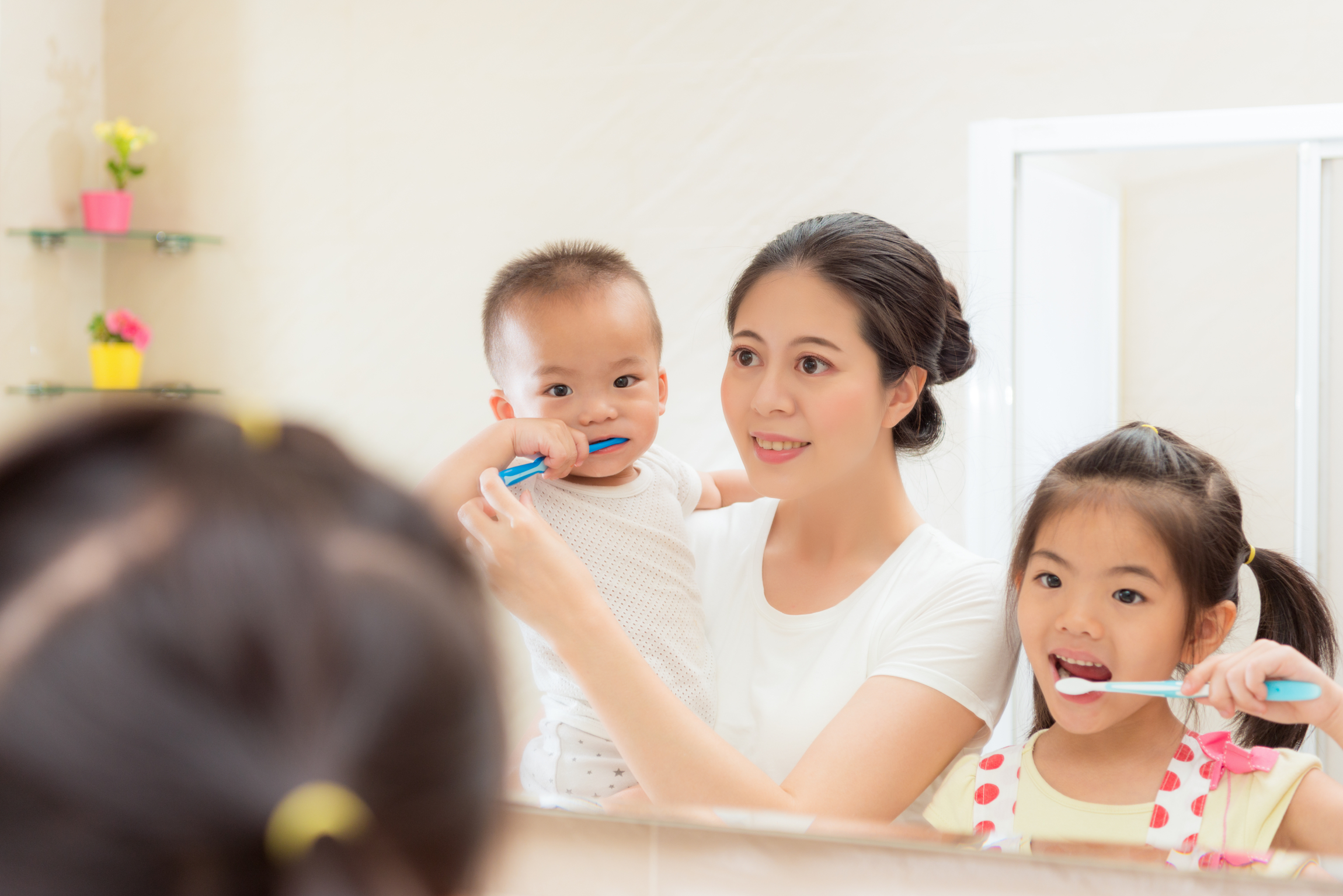
Do you know what "320" represents? To promote oral care, the FDI World Dental Federation designates 20 March each year as "World Oral Health Day." This number is quite interesting; it represents the 20 baby teeth in children, the 32 permanent teeth in adults, and 0 tooth decay—symbolising that everyone, regardless of age, should aim for "zero tooth decay" to maintain oral health.
As babies grow up, they no longer need adults’ help to clean their teeth. When they turn one, parents can begin to teach children the importance of teeth protection and nurture their good dental habits. Many parents may face challenges when encouraging their children to brush their teeth. Let’s explore the following tips to create a relaxing brushing mood for young children!
Dental Care Tip 1: How to Clean Baby Teeth Effectively?
Children will have 20 teeth by the age of 3, with incisors and molars growing around their first birthday. As children's fine motor skills develop steadily at this age, it is an ideal time for parents to encourage children to brush on their own. Parents may continue to assist children with brushing in the morning and evening when necessary. The steps for brushing are as follows:
- Place the toothbrush at a slight angle against the gum line.
- Brush the outer surfaces of all teeth.
- Brush the inner surfaces of all teeth.
- Finally, brush the chewing surfaces of all molars. Done!
Parents have several ways to make brushing comfortable and fun, such as singing children’s songs while brushing to guide children to complete the task within the time. Besides, when assisting with brushing, parents should be gentle and cautious to avoid hurting children's gums, which could lead to their negative feelings towards brushing.
Dental Care Tip 2: Brush in the Morning and Before Bed
Children sometimes find brushing “a fun game” instead of a task that has to be completed so they are not able to stay focused. Parents may consider brushing together to provide quality bonding time while allowing kids to imitate correct brushing gestures and habits. Remember to observe children's reactions and behaviours and offer them timely assistance and encouragement. Once children learn how to spit, they can start using fluoride toothpaste designed for kids.
Dental Care Tip 3: Choosing the Right Tools is Important
Children may resist brushing if they are unfamiliar with the tools. Parents can make brushing a fun interactive experience by using storybooks to introduce the tools for brushing. Taking children shopping for toothbrushes allows them to feel the softness of different brushes and choose one they like. Parents can also let them try various toothpaste flavours to keep their interest in brushing.
Dental Care Tip 4: Cultivating Good Eating Habits
Eating habits are closely related to dental care. The acids produced during meals are harmful to tooth surface, leading to mineral loss and, over time, tooth decay. Even drinking water is not able to neutralise the acids on the teeth. Therefore, reducing the frequency of meals is the effective approach. The principles are as follows:
- Limit meals to no more than 6 times a day.
- Have three substantial meals (breakfast, lunch, dinner) each day, with one snack time allowed between meals.
- Allow children to enjoy their favourite snacks and drinks during meals or snack time.
- Drink only plain water on a daily basis.
- Avoid using snacks as rewards.
- Reduce the intake of sweet food.
Furthermore, children should be guided to wean off bottle use completely by 18 months to reduce the risk of tooth decay (milk sugars cover baby teeth when the baby drinks and sleeps at the same time) or ear infections (milk may flow into the ear canal along the eustachian tube while lying down). After turning one, children can be taught to use a cup to drink water or other beverages.
"Baby Teeth Health Promotion” Programme in HKSPC Day Crèches
Our day crèches implement the "Baby Teeth Health Promotion" programme annually, partnering with parents to raise awareness on the importance of dental care for young children. We support parents through various activities, including parent seminars, promoting dental care months, sharing oral care booklets, and accessible online resources.
Rome wasn't built in a day, and so as cultivating good dental habits in children. Parents need to accompany and guide children with patience, making dental care a part of their daily routines.
Yuen Hau Ying
Centre Supervisor
Hong Kong Society for the Protection of Children William Grimsdale Day Creche
With over 20 years in early childhood education and a Master’s degree from The Education University of Hong Kong, Yuen specializes in the development of children aged 0–6. Yuen advocates for learning through daily life and nurturing independence, while fostering warm, respectful relationships between children, parents, and educators and creating a joyful atmosphere in the day creche.
